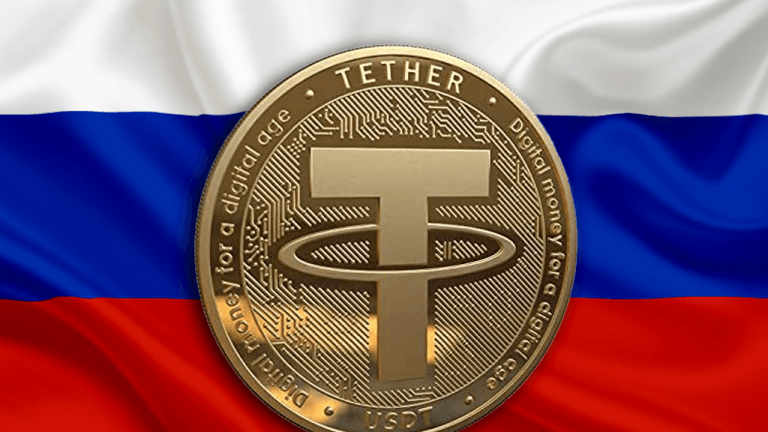
Robinhood accumulated $3B in Bitcoin in 3 months — What does this mean for markets?

Robinhood’s Bitcoin holdings could reshape the crypto landscape by supercharging the influence of retail investors and possibly creating new market risks.
In a swift and intriguing turn of events, a previously enigmatic Bitcoin (BTC) address managed to catapult itself to the esteemed position of the third-largest holder of BTC. As reported by Cointelegraph on Aug. 22, the address in question accumulated a staggering 118,000 BTC.
While its identity has now been attributed to Robinhood, questions still linger, as the financial giant has neither confirmed nor denied these allegations. Some on-chain analysts posit that the stash actually belongs to MicroStrategy, the U.S. business intelligence and analytics software firm, which holds 152,800 BTC, as per their recent submission to the U.S. Securities and Exchange Commission.
Is TradFi dethroning crypto-focused intermediaries?
Should Robinhood’s ownership of the 118,000 BTC be validated, the consequences could reverberate across the cryptocurrency landscape. Traditionally, the largest Bitcoin addresses have predominantly been linked to crypto-native exchanges. However, Robinhood’s role as a conventional broker focused on equities and options sets an intriguing precedent.
A glance at Robinhood’s latest 10-Q filing reveals that they held $4.24 billion in Bitcoin. Given Bitcoin’s price neared $30,500 on June 30, this equates to approximately 139,016 BTC – a fact that aligns seamlessly with the on-chain analysts’ contentions regarding Robinhood’s substantial crypto holdings.
If Robinhood is the owner of the “mystery” Bitcoin address, this makes one point pretty clear. Bitcoin doesn’t rely on big institutions to succeed. Analysts used to argue that for Bitcoin to really take off, more big investment firms or companies like Tesla and Block Inc. needed to get on board. But those hopes fizzled out as recent reports from Apple and Alphabet (Google’s parent company) revealed they hadn’t taken the Bitcoin plunge after all.
RegardingRobinhood, reports say that by June 2023, they had around 23.2 million active users. If just 10% of them owned some Bitcoin, they would need an average of about $1,828 each to reach the reported $4.24 billion in Bitcoin holdings. This goes to show that regular people, like those on Robinhood, can actually play a significant role in shaping the cryptocurrency landscape.
The downside of Bitcoin being held by Robinhood
While some investors want Bitcoin mass adoption by any means possible, getting there is not without risk. Robinhood’s user base is known for their penchant for speculative trading notably in meme stocks like AMC, GameStop and Bed Bath & Beyond. These traders also boast substantial holdings in Dogecoin (DOGE) – amounting to a staggering $2.63 billion.
Their propensity for short-term investments raises questions about their approach to Bitcoin. If these investors purchased BTC in anticipation of U.S. spot-based ETF approval, the prospect of a prolonged price decline or delayed approval might trigger mass sell-offs.
Furthermore, a more remote yet conceivable risk emerges from the possibility of U.S. government intervention. Although the probability of a scenario akin to the 1933 Executive Order 6102, which mandated private gold holdings be exchanged for paper currency, seems slim, potential actions by U.S. authorities could potentially jeopardize these holdings.
Even in the unlikely scenario where the U.S. justice system or the IRS opts to lock down those assets while they investigate users for tax or similar issues, the substantial stash of Bitcoin held by Robinhood only amplifies the potential risks. The expansive pool of assets held by Robinhood heightens the risk of such actions affecting a larger portion of the market.
Related: ARK, Glassnode propose Bitcoin economic analytics framework using new metric
Paradoxically, this vast accumulation of cryptocurrency holdings by Robinhood clients could potentially serve as ammunition for ETF applicants. While offering a comparable service, Robinhood’s potential lack of investor protections could incentivize the establishment of more secure and regulated ETFs.
The newfound prominence of Robinhood in the cryptocurrency sphere underscores the ever-evolving nature of the market. Whether or not spot Bitcoin ETFs materialize, investors will find alternative avenues to enhance their exposure to cryptocurrency, be it through MicroStrategy shares, Robinhood, or other innovative means. This adaptability aptly demonstrates that in the realm of finance, innovation and progress are inevitable – much like nature’s unyielding drive to find a way.
This article is for general information purposes and is not intended to be and should not be taken as legal or investment advice. The views, thoughts, and opinions expressed here are the author’s alone and do not necessarily reflect or represent the views and opinions of Cointelegraph.
Go to Source
Author: Marcel Pechman






